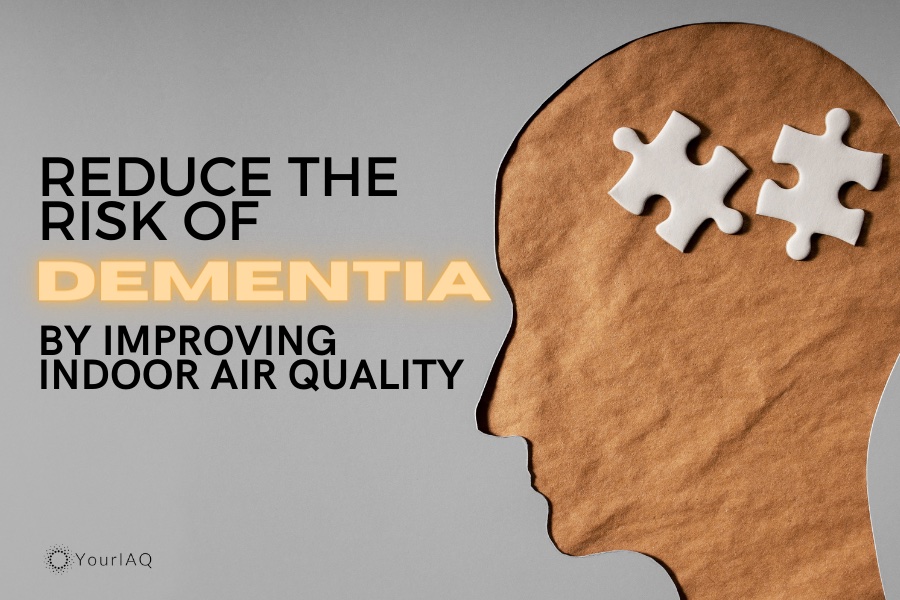
It’s not a widely know fact that poor indoor air quality can increase the risk of dementia. However, a recent study in the Journal of Internal Medicine found people who were exposed to high levels of air pollutants in their homes were more likely to develop dementia over the course of 10 years.
Here’s what you need to know.
Air Quality and Dementia
The study looked at data from over 1,000 people collected over an average of 10 years each. Researchers found that those who were exposed to high levels of fine particulate matter (PM2.5) in their homes were 20% more likely to develop dementia than those who were exposed to lower levels of PM2.5.
PM2.5 is a type of air pollution that is made up of tiny particles that can get into your lungs and bloodstream.
The study’s findings are important because they suggest indoor air quality is a modifiable risk factor for dementia. By improving indoor air quality, you can reduce your risk of developing this devastating disease.
There have also been findings in other studies suggesting a link between mold exposure and dementia. Regardless of the culprit, breathing unhealthy air indoors over long periods may contribute to dementia, Alzheimer’s or other neurological issues.
How to Reduce Your Risk
There are a number of things you can do to improve your indoor air quality. Here are a few tips:
- Ventilate your home regularly. Open windows and doors to let fresh air in. If you have a forced-air heating or cooling system, make sure it is properly maintained and that you change the filters regularly.
- Reduce sources of indoor pollution. This includes things like smoking, cooking with gas, using candles, and having pets.
- Install an IAQ monitoring device. This will help you to identify any potential problems with your indoor air quality.
If you’re concerned about how indoor air quality impacts your health, talk to a medical professional. They can help you to assess your risk of dementia and develop a plan to improve your living environment.
Consider a Monitoring Device
An indoor air quality monitor can help you to keep track of the quality of the air in your home. This can be especially important if your household has young children or elderly adults, who are more vulnerable.
There are a number of different monitoring devices available on the market. When choosing the one that’s right for you, consider the following factors:
- Accuracy. Make sure the device measures the pollutants that are most important to you.
- Ease of use. The device should be easy to set up, use, and understand.
- Actionable data. Look for a device that provides information you can use to take steps to mitigate problems.
- Price. Indoor air quality monitors range in price from a few hundred dollars to a few thousand dollars. Choose a device that fits your budget.
Dementia is only one health risk of breathing poor indoor air. Other health ailments include respiratory illness, asthma, and allergies. Measuring what’s in your air is the first step to improving indoor air quality and limiting these risks.







